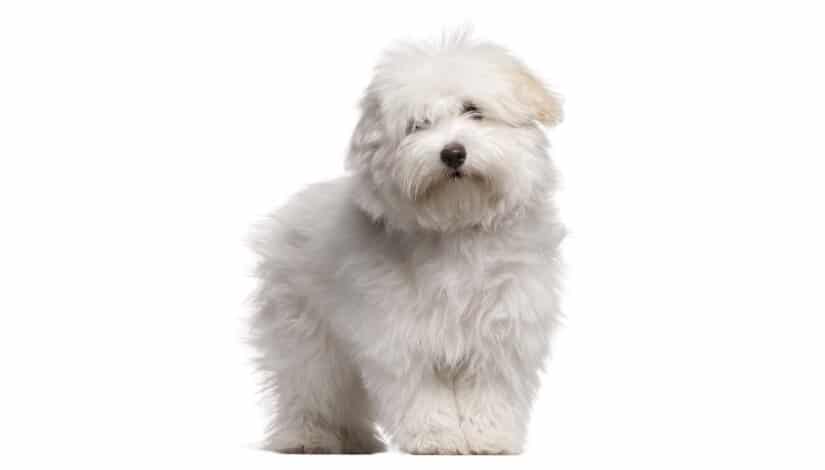The Coton de Tulear, otherwise known as the Royal Dog of Madagascar, originated from Madagascar. This dog breed is part of the UKC, Companion Group. The Coton de Tulear belongs to the Bichon family. It is a companion dog breed.




Brief History
The Coton de Tulear is named after the seaside town of Tulear in Madagascar. The nobility used to favor this dog breed. The Malagasy elites were very possessive over this breed, even refusing to allow this dog breed to leave the island. This dog breed became the Royal Dog of Madagascar, and only nobility could have a Coton.
In 1973, a U.S doctor visited the island, and brought the first Coton de Tulear to the U.S in 1974. This breed lived in isolation under the 1960’s. This is when French tourists discovered the breed. The European tourists enjoyed this breed. The Coton de Tulear became a hit in Europe. The AKC registered this dog breed in 2014.
Physical Description
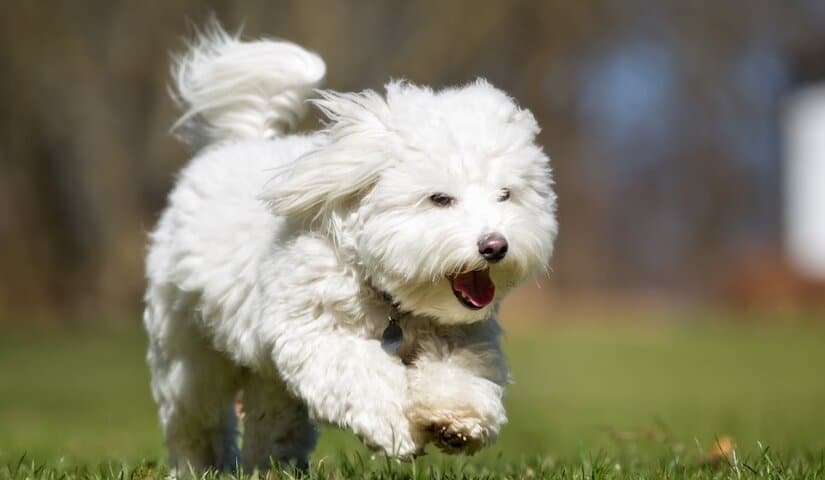
The Coton de Tulear is a small dog breed. This dog breed is sturdy, and hardy. It is a well-muscled dog breed that has round, lively dark eyes, and a large, black nose. With triangular drop ears, a medium-length, the Coton has a low-set tail. The tail has a downward hook at the very end. When moving, the tail is carried happily upright. The neck is lightly arched.
The cotton-like coat is medium-length, and thick. The coat comes in three color varieties: white, tricolor, and black and white. White is the most common color in this dog breed. The movement is free and easy. The Coton is happy, and an even-natured dog breed that gates on with everyone, dogs included.
Temperament
The Coton is a playful dog breed that gets on with other dogs, children, and people. This breed becomes strongly bonded with his dog parents, and family. The Coton is cheerful, even tempered, and sometimes clownish. The Coton is never demanding of his dog parent, but is witty and fun.
The Coton may be boisterous at times when he wants to go out to play. This breed is gentle and sympathetic, and makes for a perfect companion. As with all breeds, it is necessary to begin socialization early on during puppyhood. Positive dog training need to be without harsh reprimands. This is a gentle soul that needs plenty of nurturing, and TLC! The Coton does well with family outings, and enjoys being taken everywhere.
Special Needs
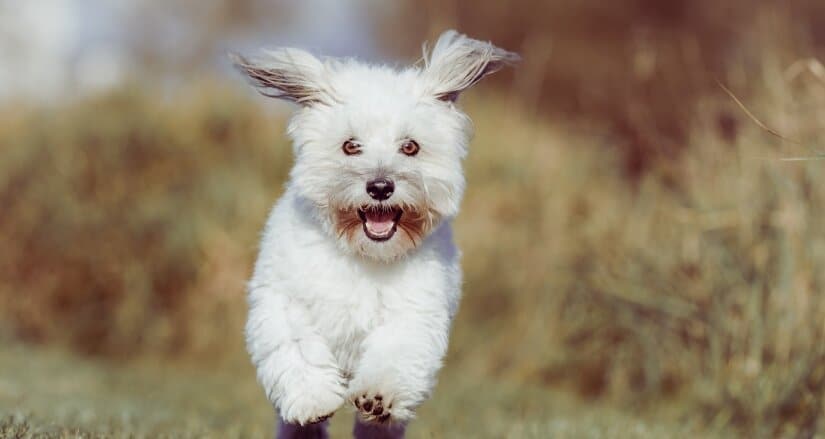
The Coton is a versatile dog breed that does well with either city or farm living. The Coton should never fly in cargo, and does best with cabin flights. This breed does enjoy being taken with his dog parents and family on dog vacays, and does well fitting in. The Coton tends to get depressed if boarded elsewhere during the holidays.
This is a dog breed that is prone to depression when it’s back-to-school time. The Coton, although a very happy dog breed needs to have sensitive dog parents that are gentle and understanding. This is not a dog breed that does well being alone all day. The Coton needs to be indoors, and pampered.
This dog breed may be thunder-storm phobic. Gentle therapeutic relax and recover shirts for dogs provide therapeutic pressure to help dogs feel secure and calm during thunderstorms or times of stress. Use of calming essential oils with the use of Calm Paws Calming Disks work well. Thundershirts, another anxiety wrap also provides gentle, constant pressure to help dogs deal with stress during travel, separation anxiety, storm phobia, and other every day stresses that your Coton may have to deal with.
Possible Health Concerns
The Coton is a very healthy and active dog breed that may be susceptible to the following health concerns:
- Hip Dysplasia: This is a hereditary developmental disease. HD affects the Coton. HD occurs when the hip joint fails to develop properly. In the Coton with HD, the head of the thigh bone does not fall into the hip socket. The imperfect fit results in the joint becoming loose and unstable, and results in osteoarthritis.
- Progressive Retinal Atrophy (PRA) is the name for a group of diseases that cause degeneration of the retina. This will include inherited abnormalities of the light-sensitive cells.
- Luxating Patella: The Coton may be predisposed to this condition. This occurs when the patella slips out of the trochlear groove and causes lameness. The kneecap ends up being displaced towards the mid line of the dog’s body. Consult with your veterinarian for advice.
Exercise
The Coton does well with regular and relaxed walks. This will keep him fit and healthy. As with all dog breeds, a bored Coton alone at home could become destructive. The Coton enjoys plenty of interactive dog toys, and dental chews. The Coton does well with frequent trips to the dog park, and organized playdates.
As your Coton ages, it’s important to make the correct choices as to the amount of exercise, and the types of canine sporting activities that your Coton participates in. Therapeutic portable pads can help with aches and pains for the older Coton’s. These can be placed in carriers, Coton strollers, and in dog beds.
Nutrition
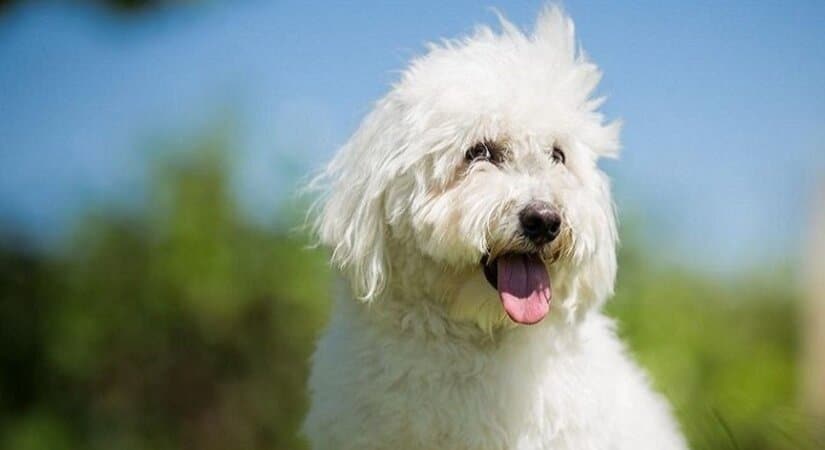
The best dog foods are made with the simplest and most nutritious ingredients. Look for high-quality ingredients such as whole meats, fruits, vegetables, and grains, and take heed of the different macronutrients like proteins, fats, and carbs. Providing your Coton with the most appropriate diet that is healthy and beneficial to his life stage, will help give your pet a long and healthy life.
If you’re wanting a natural, organic and holistic dog food, dry dog food brands offer many varieties-grain free, gluten free, vegetarian and traditional. Dry dog food is available through most pet food brands.
General ingredients that include whole meats, fruits or vegetables in their top 5 ingredients are considered good foods. Those that also incorporate antioxidants like blueberries, cranberries, pomegranates and pumpkin are also becoming popular. Additionally, organic, natural and preservative-free with no artificial ingredients, are also key to a well-balanced, and high quality dog food.
Here’s what to look out for when choosing a high-quality dog food:
- No chicken meal products or other rendered animal parts
- No use of the 4D products: diseased, disabled, dying and dead (before being slaughtered) in their food
- Look for real, natural ingredients such as fresh chicken, whole greens, and berries
- Look for glucosamine and chondroitin for hip and joint wellness for senior Coton’s
With small and toy dog breeds like the Coton, it’s always best to consult with your veterinarian as to the best high-quality diet. Don’t allow for your Coton to become obese. Your veterinarian will advise as to the best diet that includes the right amount of minerals, vitamins, essential fatty acids, and essential amino acids.
Your Coton needs to build and maintain healthy tissue, and carry out necessary biological functions. That said, a healthy and well-balanced diet that is based on the Coton’s stage of life, whether it be puppyhood, senior, pregnant, adult or adolescent, will provide your dog with the right amount of these components.
Grooming
“Puppy” clips are tremendous for the Coton. Daily brushing is required for a healthy coat. For the traveling Coton, there are numerous dry canine shampoos, spray conditioners, and spritzes available for in-between bathing touch-ups. Natural pet products that don’t contain chemicals or alcohol are gaining popularity today. There are also a few natural flea and tick shampoos that naturally repel fleas, mosquitos, ticks, and flies. Opt for high-quality dog grooming products that only contain healthy and natural ingredients.
As with all dogs, Coton’s need to have their teeth brush every day. Brushless toothpastes are available today which provide the same benefits as with brushing with a toothbrush. Canine toothpaste help control plaque and tartar, as well as bacteria, that will result in your Coton having doggie breath. Using the right sized chew treat for this small dog breed is also important. Dental chews are necessary to help remove tartar and plaque, and work together with regular dental brushing. Visit your veterinarian twice yearly for a professional dental cleaning. Smaller dog breeds tend to have more dental issues.
Along with canine dental cleanings, regular ear care is necessary. Check your Coton for sensitivity, and maintain great ear hygiene in your Coton. Doggie wipes may be beneficial for ears, and muddy paws. Use a canine nail grinder if your pooch has a hard time with nail clipping. Contact your veterinarian or a professional, certified groomer to help with grooming needs.
If using a professional groomer, it is necessary to opt for a certified groomer. Do plenty of on-line research, and opt for word-of–mouth recommendations. Stay away from large grooming stores, that may have inexperienced trainee groomers working. If using a large grooming store, opt for no use of the drying cages, and hang out there to supervise. It is always best to be close by, and watching your groomer and dog, to make sure that your Coton is handled gently at all times. Veterinary grooming is a safer way to go. Consult with your veterinarian for grooming advice.
Adopting a Coton de Tulear
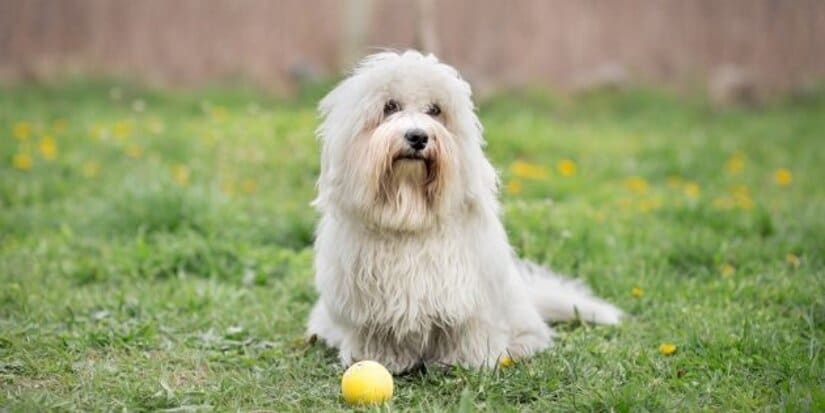
The Coton is such a terrific dog, and a best friend to have around the home. This breed is best suited for all dog parents that want to take their pooch everywhere with them. This playful dog breed needs lots of attention and TLC! This breed insists on regular dog vacays with the family!
As with all shelter rescues, your Coton may have some housetraining issues. These will most likely be small, and can most times be worked through with the help of a positive dog trainer and sound veterinary advice. Good canine parenting means consistency, kindness, respect for your Coton, and never getting frustrated or angry. Do not adopt if you’re apt to losing your temper. The dog will be safer at the shelter.
Always take your Coton to the veterinarian for a full health check right after adoption, so as to rule out any medical conditions that may contribute to behavioral issues.
As usual, make sure that you have the time and resources to take good care of your Coton!
